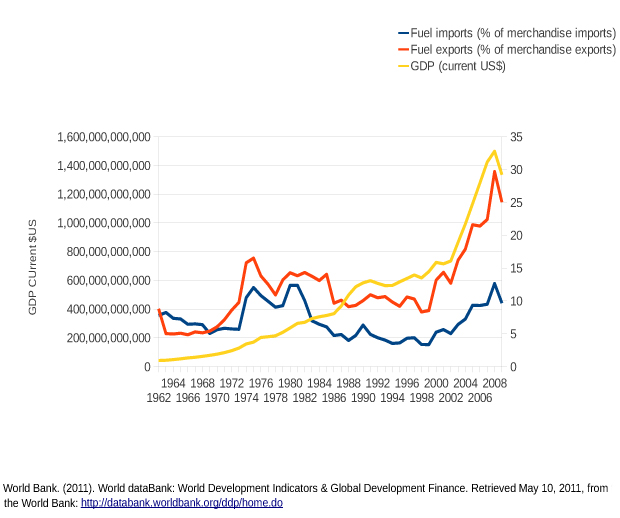Fuel exports and GDP, what does this graph mean for Canada’s future vitality, especially given scenarios of peak oil and our dependence upon non-renewable resources? With our economic well-being so tied to the export of fuel, and the increasing world-wide demand of newly industrialized countries (NICs), such as China and India, what does this mean for our own energy security, and sovereignty, especially given the increasing investment by China in the Alberta Tar Sands? And yet, this country’s economy is so very reliant on natural resources; a good society asks, 'at what cost?'
Looking at the graph, in the late 1990s, Canada was a leader in the Kyoto protocol, just before the correlation between GDP and our fuel export becomes tighter. Around 2000, Alberta’s crude oil becomes profitable and there is a rapid expansion of the Alberta Oil Sands. Canada's oil reserves are now second in the world only to those of Saudi Arabia, and total an estimated 178.8 billion barrels. Our GDP is now directly linked to oil production. A good society would ask can we afford this reliance solely on natural resource extraction? What is the cost to innovation and the knowledge economy? Can we afford this lack of diversity in a highly globalized world where exogenous shocks cannot be anticipated?
For a history of Canadian oil, please refer to this timeline prepared by Geo-Help Inc.

- Log in to post comments

CRC Comments